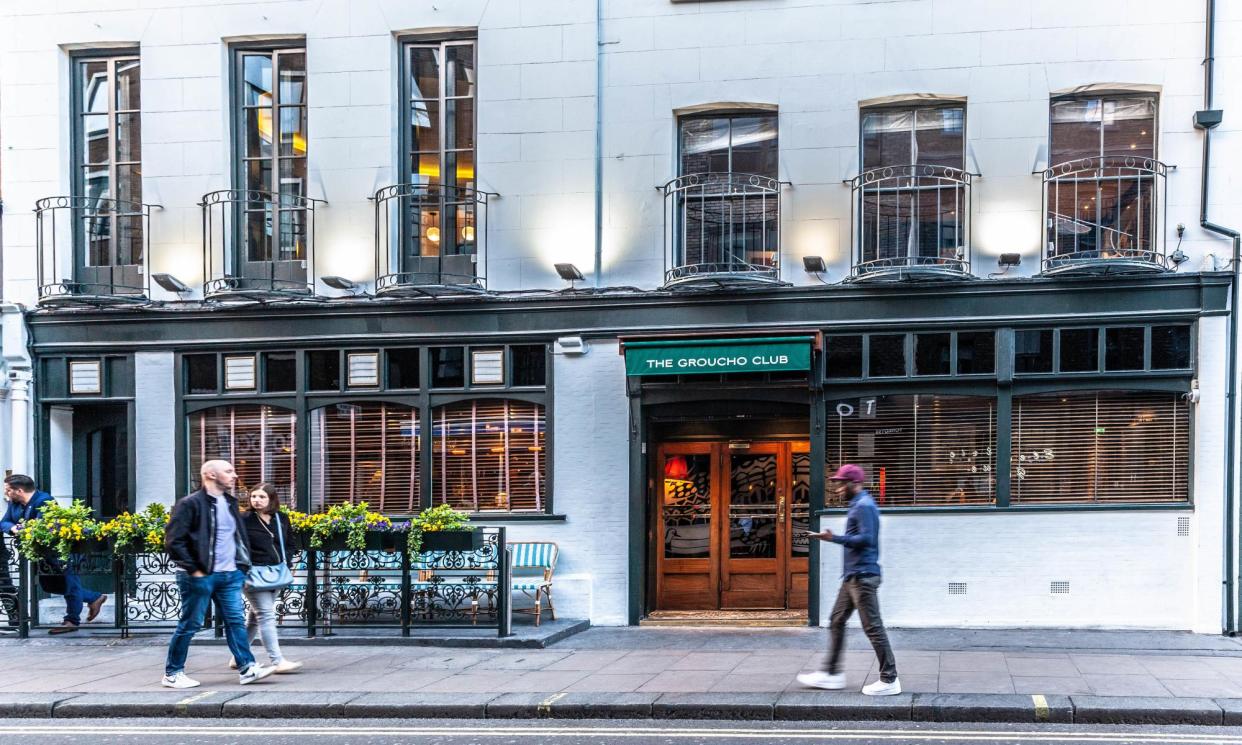‘Why would we go to America first?’ London’s Groucho Club to open in Yorkshire

The Groucho Club, the private members’ club known for its hell-raising 39-year history in the heart of London’s Soho is expanding for the first time to an unlikely location: the heart of the West Yorkshire countryside.
The club’s first outpost will be located near Wakefield at Bretton Hall, the former arts education facility that sits within the grounds of the Yorkshire Sculpture Park, which will be converted into a club and hotel with about 60 rooms.
The appearance of the most London of brands close to the Rhubarb Triangle may raise a few eyebrows but Ewan Venters, the CEO of Artfarm and Hauser & Wirth, said the move to Yorkshire made more sense than an oft-mooted international expansion.
“Why would we go to America first, why wouldn’t we want to go to the north of England?” he said, before getting in a gentle dig at his competitors. “I wanted to avoid the Cotswolds because that doesn’t represent our membership.”
The Groucho Club was founded in 1985 by a group of publishers and agents including Carmen Callil and Liz Calder, and has 5,000 members. It welcomed female members, something that was anathema to London’s male members’ clubs, while fostering a creative membership that included everyone from members of Blur and Damien Hirst to Tracey Emin and Francis Bacon.
Venters says the new location will have the “DNA” of the Soho establishment while offering a programme of music, performance arts and lectures.
The hotel and club will be the latest expansion by a luxury brand to the north of England and beyond: Soho House is creating its first northern base in Manchester, while the Sessions Arts Club restaurant opened an artists’ retreat and hotel called the Boath near Inverness.
Venters said he hated the term “levelling up”, calling it a “disparaging term in the wrong context”, but said he believed there was a “civic duty” for the public and private sector to ensure we have “a very healthy cultural and economic country in every part of the UK”.
Venters says the venture, in partnership with Rushbond Group, a retail investor that has bought several sites in Yorkshire (including the brutalist former northern home of the Bank of England in Leeds), is very different from the Soho House expansions, which have led some members to say it has lost its appeal.
He pointed to other successful projects such as his renovation of the five-star Fife Arms hotel in the Scottish highland town of Braemar, which he said had breathed new life into the local economy.
The Groucho Club’s second site is a different proposition: it is located in a cultural hub that was established almost 50 years ago.
The Yorkshire Sculpture Park is only a few years older than the Groucho Club, opening in 1977, and its former director Peter Murray said “no one thought it was a good idea” to found the rolling 202-hectare (500-acre) estate.
It now welcomes 380,000 visitors a year, has hosted international names and a city-based festival, while the Rhubarb Triangle has been hailed the Sculpture Triangle with Leeds Art Gallery, the Henry Moore Institute and the Hepworth Wakefield making West Yorkshire “arguably the best place in Europe to see sculpture”.
The Groucho Club sees that base as an attractive draw for London members, who will get full access to Bretton Hall once it reopens in 2026.
Venters anticipates the northern outpost’s core membership to be drawn from the creative communities in Leeds (where Channel 4 has moved its headquarters), and even as far afield as Manchester. “I expect members to travel up to an hour, which isn’t that different from the Groucho in Soho,” he said.
When Hauser & Wirth, the international gallerists, bought the Groucho Club in August 2022, Venters said there was a focus on bringing in younger members.
In the case of Bretton Hall he didn’t have a particular demographic in mind but added: “Yorkshire couldn’t be more multicultural and diverse so it’d be wrong to pigeonhole and say it’s a 30- to 50-year-old person working in the creative industries.”
Venters said there was still an ambition to expand the Groucho Club internationally, but first the most London of clubs needed to conquer West Yorkshire.


